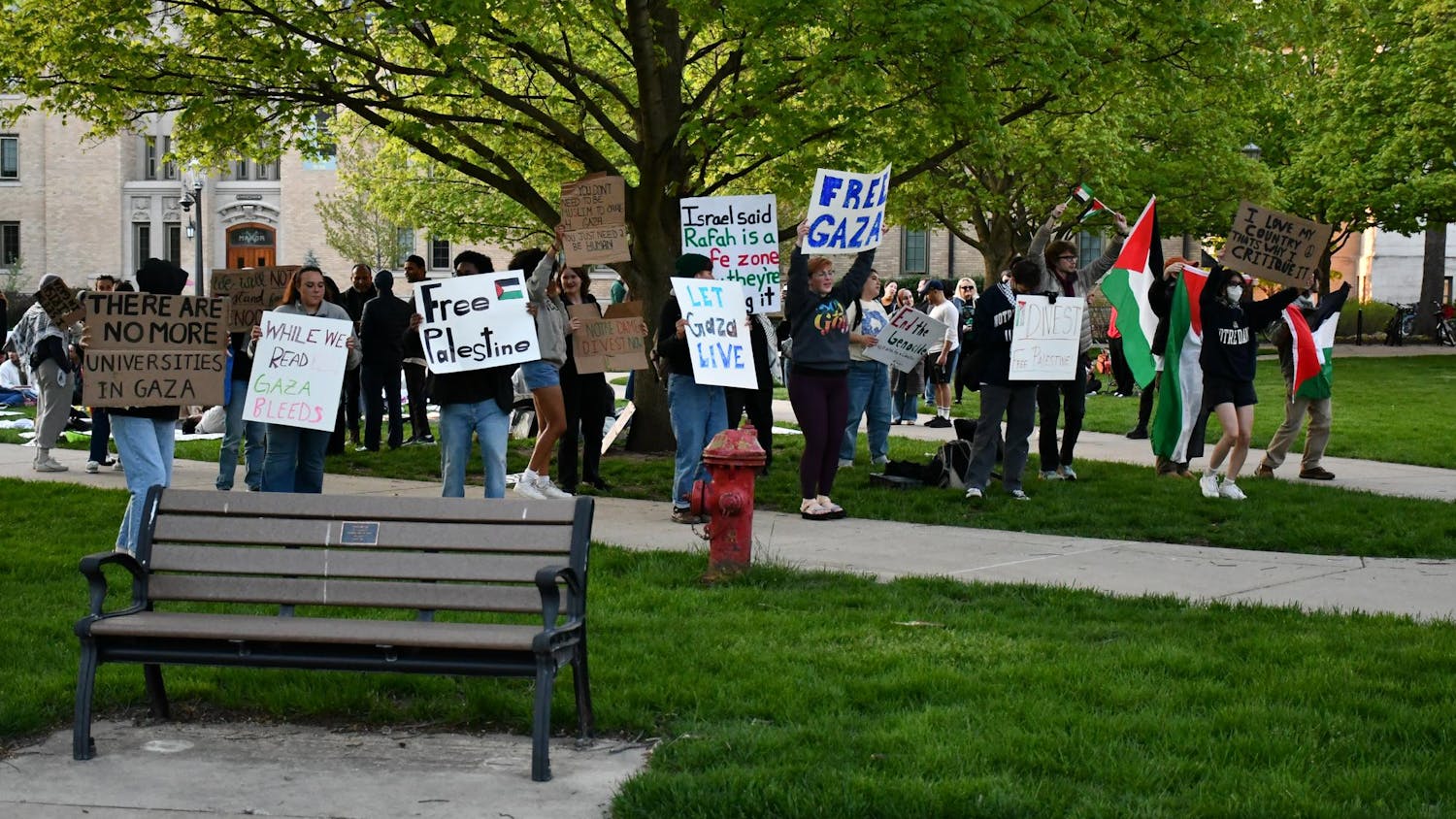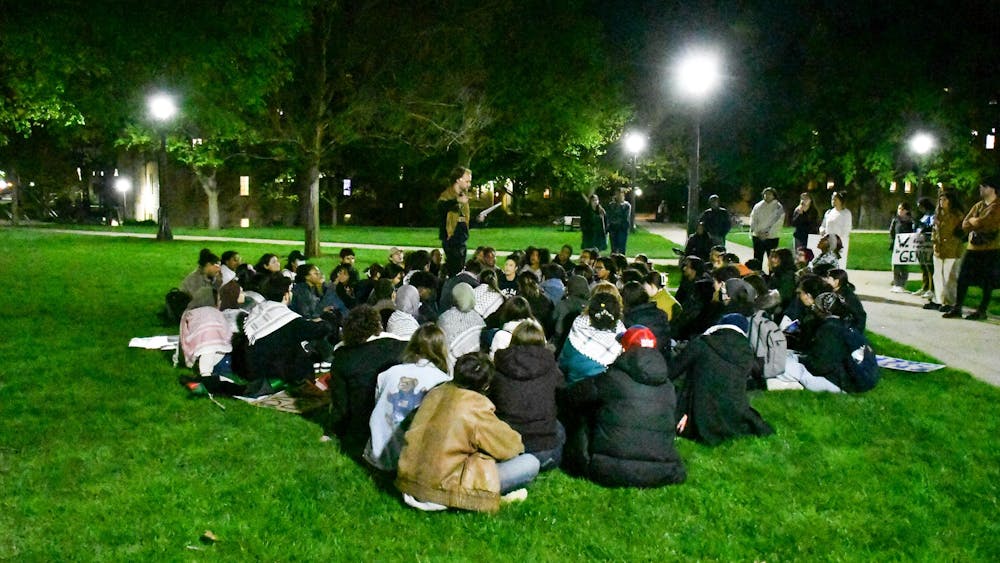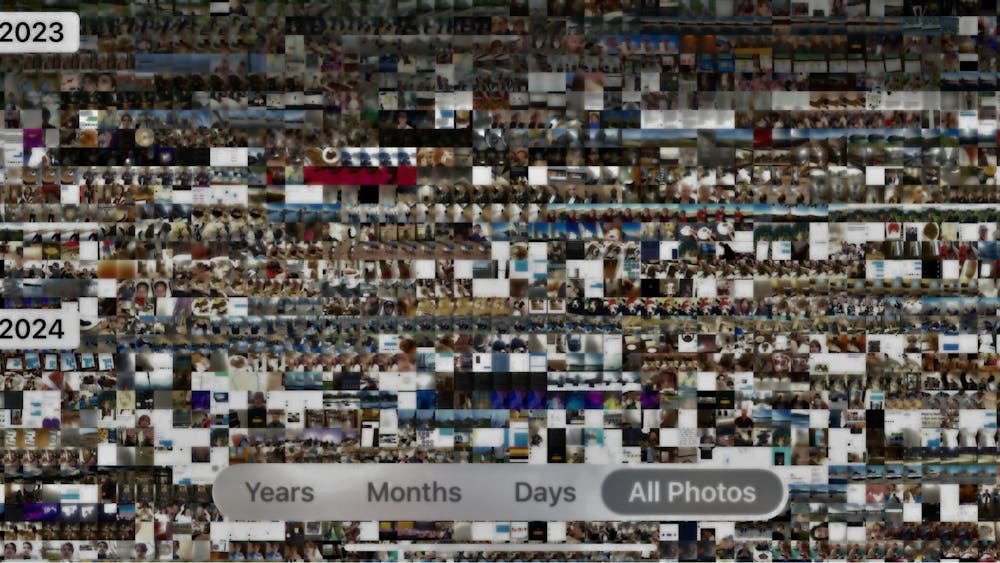Editor’s note:This letter includes mentions of sexual assault. A list of sexual assault reporting options and on-campus resources can be found on theNotre Dame,Saint Mary’s andHoly Cross websites. Dear Notre Dame, On behalf of Students for Child-Oriented Policy, I would like to invite you to our annual White Ribbon Against Pornography Week! SCOP is a club dedicated to promoting the flourishing of children in happy and healthy families. To this end, one of our key pillars addresses porn’s impact on both children and adults. The last ten years of social science research have revealed that porn consumption causessexual dysfunction, decreased quality of relationships for both men and women and sexual aggression. Sexual violence and sex trafficking are next week’s focus, with a documentary video and speaker from Exodus Cry, an anti-sex trafficking non-profit. Over the last year and a half, the porn industry’s connection with sex trafficking, rape and child sexual abuse material (CSAM) has become increasingly clear. In December 2020, Nicholas Kristof wrote a devastating exposé in the New York Times on Pornhub’s exploitation of girls for commercial gain. His reporting details the stories of numerous girls, both underage and of age, whose rape videos were published online on Pornhub and other websites. Earlier this year, Serena Fleites, the woman featured in Kristof’s piece, sued MindGeek, the parent company of Pornhub and many of the other most-visited porn sites. Accompanied by 33 Jane Does, Fleites alleged in a 179-page lawsuit that MindGeek is “a classic criminal enterprise carried out through wide-ranging criminal activities, including, but not limited to, human trafficking; child pornography; criminal copyright piracy; internet hacking, stalking, and doxing; blackmail and extortion; mail and wire fraud; embezzlement, bank and creditor fraud; tax evasion; and money laundering.” Kristof correctly noted in December, “If [MindGeek] operated in another industry, the Justice Department could be discussing an antitrust case against it.” MindGeek’s website is full of meaningless buzzwords: “MindGeek continues to drive the state of technology forward, developing industry-leading solutions enabling faster, more efficient delivery of content every second to millions of customers worldwide.” They proudly boast, “Our hosted sites combine to rank in the top ten globally for traffic levels, letting Mindgeek [sic] stand alongside a select few who dominate the cyber landscape.” Why is MindGeek so secretive and evasive, unless they know that their business is illegitimate? MindGeek has a sordid history of financial gain through sex trafficking. One of their “content partners” for many years was a company called GirlsDoPorn, which was indicted in October 2019 and eventually ordered to pay restitution of more than $12.7 million to 22 women. In addition, Ruben Andre Garcia, a producer and performer for GirlsDoPorn, pleaded guilty to sex trafficking charges in 2020. Back in 2017, now-convicted sex trafficker Kamonsak Chanthasing sent messages to multiple underage girls, offering to pay for pornographic material. These videos were then published on Pornhub. Even after multiple requests for removal, these videos have remained on the website — and, worse, Pornhub’s download option has resulted in these videos being uploaded to many other websites. Once something is posted to Pornhub, it will never disappear, which becomes a serious problem for the girls whose sexual identities have been wholly violated and destroyed. Most of the plaintiff’s stories conclude with experiences of bullying, depression, anxiety, self-harm and even suicidal ideation. Basic searches performed by journalists such as Kristof have uncovered videos with titles alluding to underage girls and boys; drunk, drugged or incapacitated women; secret recordings; stolen underage videos; and racist videos with anti-Black and antisemitic themes featuring predominantly. Putting aside the debate over whether all porn is bad, it should be clear that there is evil material on the internet. As Kristof remarks, “It should be possible to be sex positive and Pornhub negative.” Regardless of our political and moral beliefs about sex, we should not support a company that financially benefits from others’ bodies — this is slavery. The University of Notre Dame should not tolerate the presence of these videos on its information technology and internet networks. As a unified community, we should take a stand against sex trafficking, CSAM, non-consensual sexual material, stolen sex videos and hate-filled videos that objectify and fetishize Black, Asian and Jewish people. Until websites like Pornhub feature none of this material, Notre Dame should not facilitate its access. By allowing the MindGeek websites to remain on its networks, Notre Dame is financially, materially contributing to the continuation of these crimes.
Zef Crnkovich
senior
co-president, Students for Child-Oriented Policy
Sept. 28













